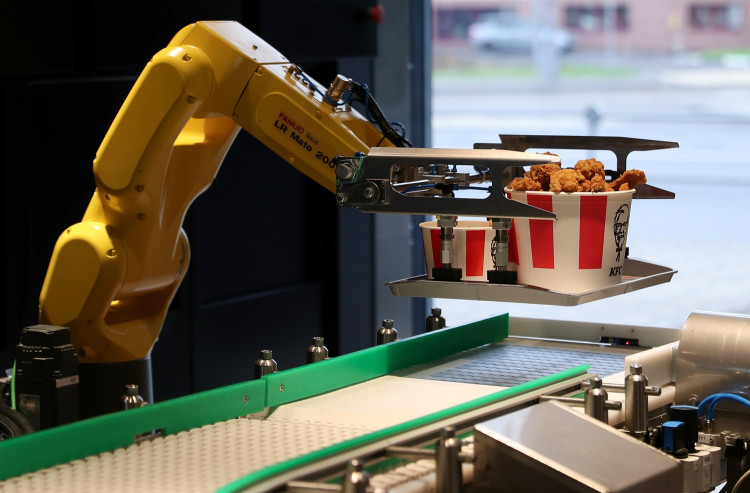It goes without saying that artificial intelligence will drive our workforce to evolve. To alarmist, AI equates to humans losing their jobs to machines. Optimists, on the other hand, will look into the beauty of a human's passion in order to find new responsibilities that require abilities that only humans can perform.
Experts have predicted that many jobs will be replaced by AI in the future, but in turn, new jobs could be created. Although yes, the uncertainty is anxiety-inducing. How will we make a living? How will human intelligence compete with AI?
It's become the topic of debates, but it's undeniable that the benefits of AI outweigh the challenges that surround it.
It's clear that AI can dramatically better the efficiencies of many workplaces. Instead of humans doing repetitive or even dangerous tasks, AI can do these instead. This frees up human workers of the chore and so they can do what they are best at -- tasks that require empathy and human creativity. If tasks are more engaging, it could lead to better job satisfaction.
AI is also essential in the healthcare industry, as it can help deliver better diagnostic and monitoring capabilities. AI can reduce costs and help save resources by enhancing operations in hospitals and medical facilities.
A McKinsey prediction states that AI could help save pharma and medicine up to $100 billion per year. But the true benefit will be felt by patients. There will be better drug protocols and personalized treatments; doctor and medical practitioners will have better access to information across facilities, which in turn make patient care a whole lot better.
In transportation, introducing AI technology will help decongest traffic, make commuting faster and more efficient, and lessen road accidents. Without stressful commutes, human workers will be able to their time in more productive ways.
Artificial intelligence is also essential in law enforcement. These days, criminals are easily identified with the use of facial recognition and genetic genealogy. There are privacy issues surrounding AI tech's use in the police force, but we could use this as an opportunity to use the tech without invading one's rights.
Our lives will be definitely impacted by AI, whether you like it or not. Yes, there are still a lot of ethical issues to consider and many learning experiences are to be expected, but at the end of the day, we are all looking forward to reaping its benefits.
Artificial intelligence will generally have more positive impacts than negative ones in communities, that much is true.






